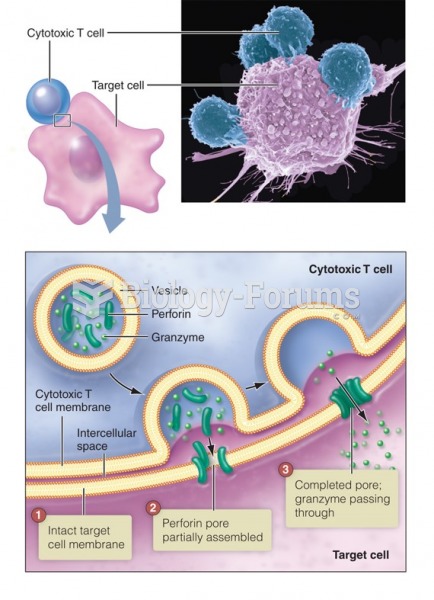|
|
|
Although the Roman numeral for the number 4 has always been taught to have been "IV," according to historians, the ancient Romans probably used "IIII" most of the time. This is partially backed up by the fact that early grandfather clocks displayed IIII for the number 4 instead of IV. Early clockmakers apparently thought that the IIII balanced out the VIII (used for the number 8) on the clock face and that it just looked better.
Cytomegalovirus affects nearly the same amount of newborns every year as Down syndrome.
People with alcoholism are at a much greater risk of malnutrition than are other people and usually exhibit low levels of most vitamins (especially folic acid). This is because alcohol often takes the place of 50% of their daily intake of calories, with little nutritional value contained in it.
Bacteria have been found alive in a lake buried one half mile under ice in Antarctica.
Fatal fungal infections may be able to resist newer antifungal drugs. Globally, fungal infections are often fatal due to the lack of access to multiple antifungals, which may be required to be utilized in combination. Single antifungals may not be enough to stop a fungal infection from causing the death of a patient.
 Model of a longitudinal study in which 983 students were surveyed in 1984 and then again in 1985, 19
Model of a longitudinal study in which 983 students were surveyed in 1984 and then again in 1985, 19
 This 1900 photograph of steel factories at night in Duquesne, near Pittsburgh, was tinted by hand. S
This 1900 photograph of steel factories at night in Duquesne, near Pittsburgh, was tinted by hand. S





